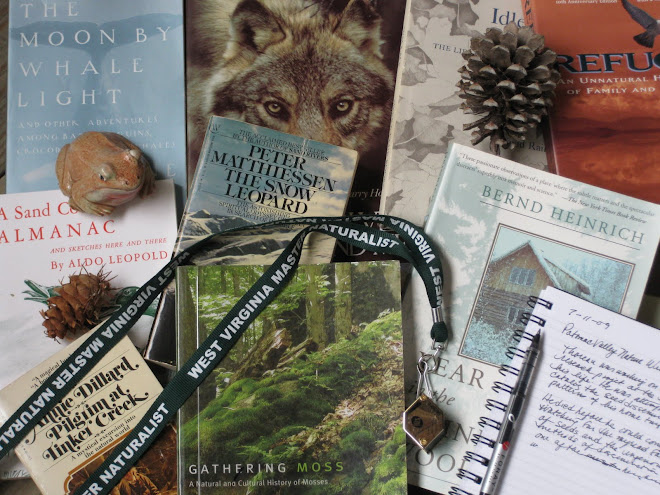 The author for January through March 2015 is Robert Frost. Frost is renown for the nature imagery in his poetry. I have not studied his work in depth, but have found his nature descriptions breath-taking in their masterful simplicity and evocation of the feelings that natural scenes and phenomena can induce in us. (The only other sound's the sweep of easy wind and downy flake.) However, some critiques are quick to point out that Frost is not a "nature poet" as were the Romantic poets of England, for example, Wordsworth:
The author for January through March 2015 is Robert Frost. Frost is renown for the nature imagery in his poetry. I have not studied his work in depth, but have found his nature descriptions breath-taking in their masterful simplicity and evocation of the feelings that natural scenes and phenomena can induce in us. (The only other sound's the sweep of easy wind and downy flake.) However, some critiques are quick to point out that Frost is not a "nature poet" as were the Romantic poets of England, for example, Wordsworth: [The] contrast between man and nature is the central theme of Frost's nature poetry. Whereas Wordsworth sees in nature a mystical kinship with the human mind, Frost views nature as essentially alien. Instead of exploring the margin where emotions and appearances blend, he looks at nature across an impassable gulf. What he sees on the other side is an image of a hard, impersonal reality. Man's physical needs, the dangers facing him, the realities of birth and death, the limits of his ability to know and to act are shown in stark outline by the indifference and inaccessibility of the physical world in which he must live.
Thus Frost sees in nature a symbol of man's relation to the world. Though he writes about a forest or a wildflower, his real subject is humanity. The remoteness of nature reveals the tragedy of man's isolation and his weakness in the face of vast, impersonal forces. But nature also serves to glorify man by showing the superiority of the human consciousness to brute matter. In this respect, nature becomes a means of portraying the heroic. There is a fundamental ambiguity of feeling in Frost's view of nature. It is to be feared as man's cruel taskmaster, scorned as insensible, brutish, unthinking matter; yet it is to be loved, not because it has any secret sympathy for man - "One had to be versed in country things/ Not to believe the phoebes wept"- but rather because it puts man to the test and thus brings out his true greatness. The Pastoral Art of Frost
Over the next few months I will be reading Frost and putting this idea to the test. I will blog about my own perceptions. Whatever his poetry seems to say about nature, there is no doubt that he loved the rural life and living close to nature. Click here to read A Walk with Robert Frost. It describes his love for botanizing.
I visited one of Frost's homes decades ago--a farm where he stayed during his summer sojourns at the Breadloaf Writer's Conference near Middlebury, Vermont. I seem to remember peering in the window of his writing cabin or even walking through and seeing the comfortable chair he favored, where he wrote with a board across the armrests. But I think I must be imagining that. Although A Walk with Robert Frost alludes to a Morris chair. Perhaps I didn't imagine it after all.


